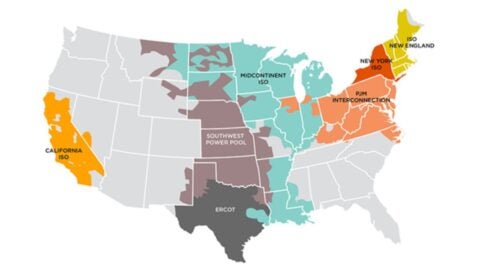6 Gasoline Numbers that Show We Could Try Harder
 This post is by Sheryl Canter, an Online Writer and Editorial Manager at Environmental Defense Fund.
This post is by Sheryl Canter, an Online Writer and Editorial Manager at Environmental Defense Fund.
Oil is over $100 a barrel now – an all-time high. Even if burning gasoline weren’t a major cause of global warming, a price that high is motivation to conserve.
But we don’t seem to be trying very hard.
Here are some numbers that make the point from Earth: The Sequel, the new book by EDF President Fred Krupp and Miriam Horn. (All profits from book sales support our global warming work.)
Fuel Efficiency
Last December, Congress passed an Energy Bill that raised CAFE (Corporate Average Fuel Economy) standards for the first time in 32 years. It took significant negotiation to push this through, and yet we are still far beyond Europe and Asia.
- 44.2 miles per gallon – Average fuel economy of the European vehicle fleet, page 226.
- 45 miles per gallon – Average fuel economy of the Japanese vehicle fleet, page 226.
- 35 miles per gallon – Average fuel economy of the American vehicle fleet when the newly passed CAFE standards are fully implemented in 2020 (up from under 30 mpg currently), page 226.
Gasoline Burned
It’s hard to wrap your mind around how much oil we actually burn. A post from earlier this year might help: Picturing 21 Million Barrels of Oil (the amount we burned last August).
- $820 million – Amount the U.S. exports every day to pay for the oil needed to supply our vehicle fleet, page 73.
- 180 billion gallons – Amount of gasoline and diesel fuel Americans consume every year in their vehicles, page 76.
- 2 billion gallons – Amount of gasoline that could be saved in the U.S. with a 10% reduction in the rolling resistance of tires (with no compromise on safety), page 224.
Clearly we need to do more to reduce our use of gasoline. Better fuel standards are important, but there are many things we can do on our own. Check out some of our previous posts for tips:












One Comment
Wouldn’t it be reveletory to determine how much gasoline (and money) individuals and the country could save if the speed limits were decreased?
Isn’t it almost criminal to have speed limits in excess of 70 mph in some states, not to mention the drivers of the gas guzzlers who average 80 on the interstates?
It would also be important to estimate, and publicize, how many people drive 10 mph over the speed limit and how much gasoline could be saved if they, too, slowed down.
Of course, most everyone is in a hurry to get where they’re going. Everyone is overworked and underpaid, blah blah blah, but I’ve noticed, just in the few tens of miles that I drive every week, that if I drive between 55 and 60 mph insted of between 65 and 70, I save a significant amount of gasoline, and money.
With oil and gas prices and availability seemingly at a crisis level, I would think this would be a worthwhile study
Christopher Zurcher
New Haven
http://www.ctenvironmentalheadlines.com
——————————————-